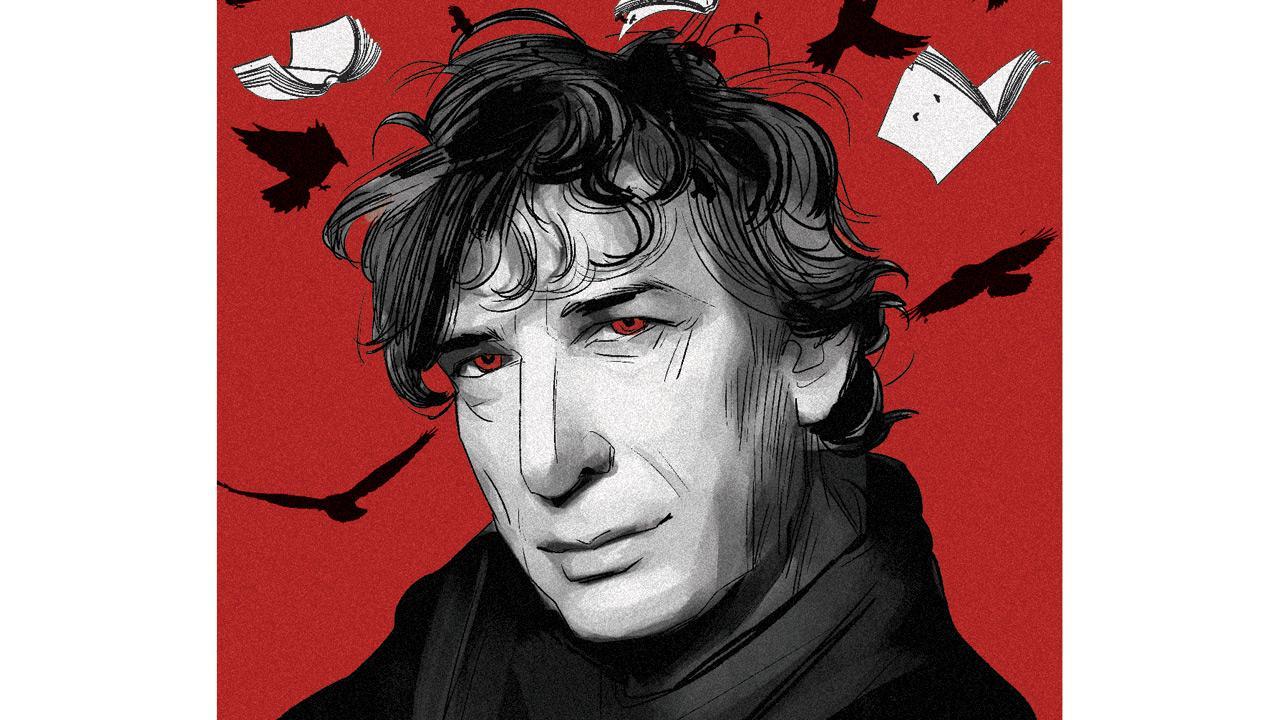Public shaming brings its share of trauma no matter who you are. But, there is no substantive loss of power for Gaiman

Illustration/Uday Mohite
![]() Last week saw another of those detailed accounts of the sexual crimes of a much- loved male artist. This time it is Neil Gaiman, writer and icon whose quotes on libraries and healing, feminism and childhood, waft throughour feeds like pristine snowflakes, eliciting virtual uffs and ahs.
Last week saw another of those detailed accounts of the sexual crimes of a much- loved male artist. This time it is Neil Gaiman, writer and icon whose quotes on libraries and healing, feminism and childhood, waft throughour feeds like pristine snowflakes, eliciting virtual uffs and ahs.
ADVERTISEMENT
What is the right response to the revelations that a powerful man is a perv like unimportant ones, and uses his wealth to silence his victims and others too? You’d have to be depraved to ask. We are pained, horrified, sickened. And of course, betrayed.
Public shaming brings its share of trauma no matter who you are. But, there is no substantive loss of power for Gaiman. We will move on to a new icon. Same rapture, different guy.
Accounts of celebrity sexual predators follow a format. Methodically detailed crimes whose tone of forensic detachment gives them political significance, setting them apart from tabloid salaciousness. They are made to sound exceptional, because the person they are about is exceptional and because they may be in a respectable magazine, not Manohar Kahaniyan. Someone will always be quoted as saying “I knew he cheated but never imagined it could be non-consensual.” That’s right—because we have no proof from the last decades that powerful, charismatic men are routinely non-consensual. Because who wouldn’t want to be with that iconic man na?
It is not their artistry that makes these artists exceptional but the act of conversion where success anoints them as celebrities. The essay on Gaiman talks about how comic book conventions he featured in have a particularly vulnerable fandom, subsuming itself to a Papa icon. But is this process limited to those fandoms?
The relationship with these figures is continuously mediated by a fawning media culture —social media is an extension of it. A whole cultural complex of “quotes”, as if passages from the Bible, exists to convert the celebrity into a cult figure, gleaming with moral certitude. We share those quotes to establish our membership in this moral cult. Most ecstatically self-declared bell hooks fans, a particular internet species, have mostly read her quotes or perhaps the one book—All About Love.
Documentary films have long pedestalised the (primarily male) artist as seer. An eroticism accrues around the bearded warrior who will lead us to moral purity. Times change. So such people could be news anchor, stand-up comic, podcaster, influencer, even a woman (Equality! Swoon!). A film may win a great prize, acquiring a religious sheen of purity and honour. Careful, your responses will reveal if you are believer or non-believer, both sides suspecting each other of some moral failing like envy or chamchagiri.
Art in itself is a private relationship, which gives us many gifts. It is bridge between our light and dark selves, leading us to autonomous thought. Its gift of multiple meanings and fluid edges gives us the possibility of a complex relationship with ourselves and others; a liberation from old feelings and ideas, also called politics.
The culture of consumption we inhabit insists we outsource this autonomous thinking to the celebrity artist and conduct an entirely public relationship in which our responses should conform to each other—identical, not myriad. Like in a cult. Later, we question the art, the artist, but never our habits of pedestalisation. The clamour of betrayal leaves the shape of power untouched. And its actual victims?
Paromita Vohra is an award-winning Mumbai-based filmmaker, writer and curator working with fiction and non-fiction. Reach her at [email protected]
 Subscribe today by clicking the link and stay updated with the latest news!" Click here!
Subscribe today by clicking the link and stay updated with the latest news!" Click here!







